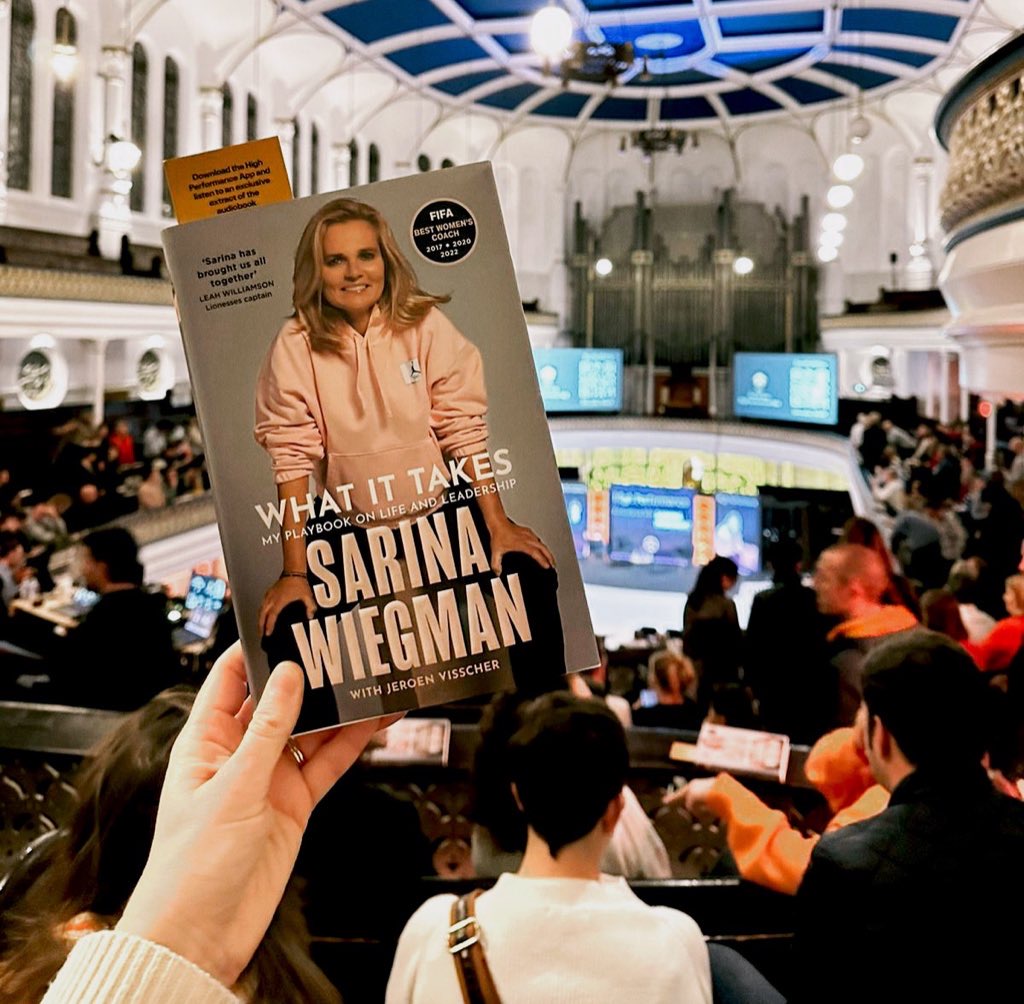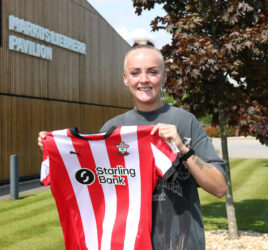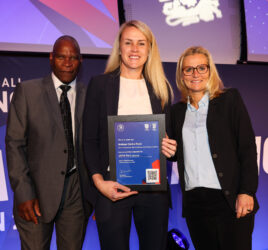“I didn’t want a biography…I said it shouldn’t be about me. But when you write a book then it is about me. I wanted it to be about the development of the game, about women and inspiring.”
Anyone who has spent time listening to or interviewing Sarina Wiegman will know that this response encapsulates the England manager. Wiegman is someone who always places the team above the individual, often looking slightly surprised by questions about her own successes.
It, therefore, makes sense that her new book, “What It Takes: My Playbook on Life and Leadership” is less a biography and more a lesson. The former will surely come when her career is complete; the latter is understandable at this moment in time.
“I’ve been in coaching for 20 years. I’ve had a lot of requests and I’ve thought, ‘No, it’s not the right time’ but I feel more and more responsibility to share stories,” Wiegman says. “I’ve noticed, with my profile now, that I can inspire people, especially girls and women who want to play football, who want to get involved in coaching, who want to get involved in the sport. I just hope I can inspire them with sharing stories I have experienced. I do realise I’m in the middle of it, but it has been a pretty special journey so far, so it was the time to share.”
Wiegman’s sense of responsibility to the next generation is evident. Her desire to help contribute to the progress of women, in football and elsewhere, is a key motivation in her career. During the Lionesses run to lifting the European Championships in 2022, the phrase “changing society” was never far from her and her players thoughts. This was illustrated by the letter they sent to Parliament during the celebrations calling on the government to provide equal access to sport in school. If her team performs and wins, then they have a platform to have an impact that runs deeper than just their own success.
“I think this this generation that we have now, including myself, know where we come from,” Wiegman remarks. “This team is so conscious of society and the change we can make and that’s very powerful. I think that’s also huge motivation for this team. I always say when you’re in a game when you’re down 3-2, you have to work harder to find the equaliser and that’s the women’s game too. So, in the women’s game and women in society, you have to work harder and that’s why we have projects too to get the position of women in football, and actually also women in general, to a better level.”

Winning is therefore integral to England’s manager. Baroness Sue Campbell, in her contribution to this book, describes Wiegman’s “twinkle in her eyes that went beyond anything she could say with words” when asked about the importance of winning.
“I really like to win,” Wiegman states. “It’s also the environment we work in. Of course, it’s about winning, and we’ve experienced how nice it is. That brings so much joy, and you never get enough of it. But focusing on winning doesn’t help. What you need to do is focus on how you can make the chance of winning as high as possible… That’s my job, because you can’t always control the result, and I really like that part too. If I can have a contribution and help someone develop in football, but mainly as a person, that gives me a lot of energy.”
Success brings pressure, especially in a football-mad country like England, but Wiegman remains visibly balanced about everything that comes with it. “Things have, of course, changed a lot,” she says. “What we always say is when we do well, we try to stay neutral and to always stay positively critical. If we win and we’re doing well, we’re not going to sit on the pink clouds, as it is literally translated from Dutch. You don’t want to become complacent… Whether we win or lose, there are always things we can do better and there are always things that we do really well that we want to make even better.”
Despite her desire for the book to be non-biographical, there are inevitably parts of her story that come to the fore. From her entry into football, cutting her hair like a boy so she would be able to play, to her success as manager of both the Netherlands and England, her journey is documented. As is the impact of her family and, in particular, her sister Diana who passed away just before the start of Euro 2022.
“She got the cancer diagnosis right before the Olympics,” Wiegman remembers. “The whole time I’ve been in England, she was getting more and more ill, and we all knew it was going to end soon. In May [2022] they said she didn’t have long to live. We had so many conversations and we made that such a valuable month that when she passed away, of course it was really sad. But she also told me, “You have to go and be successful there and go and do everything and I’ll be there”. She wanted me to be the best. I think I was still in shock or something, it was so fresh. I was so connected to her in that period that I just went, and I enjoyed it.”
“What It Takes: My Playbook on Life and Leadership” by Sarina Wiegman is on sale from 9 November 2023



